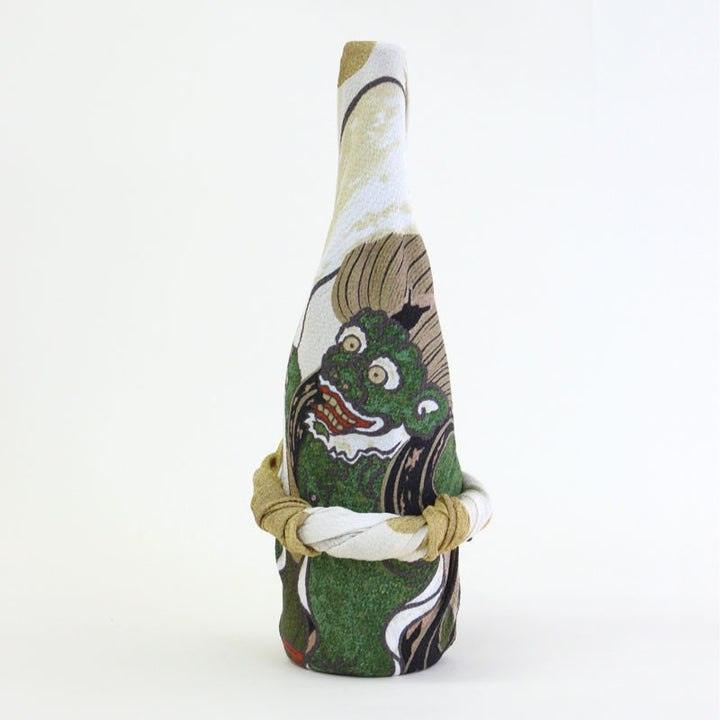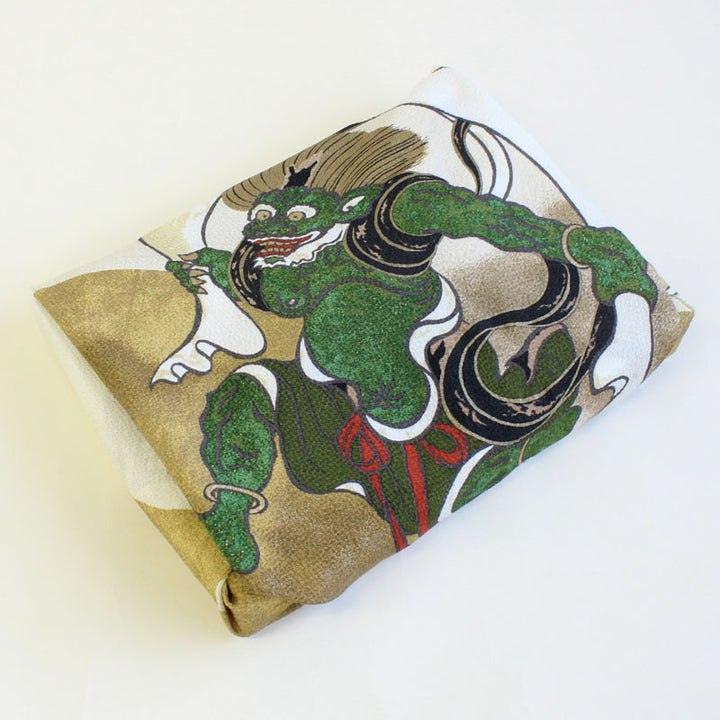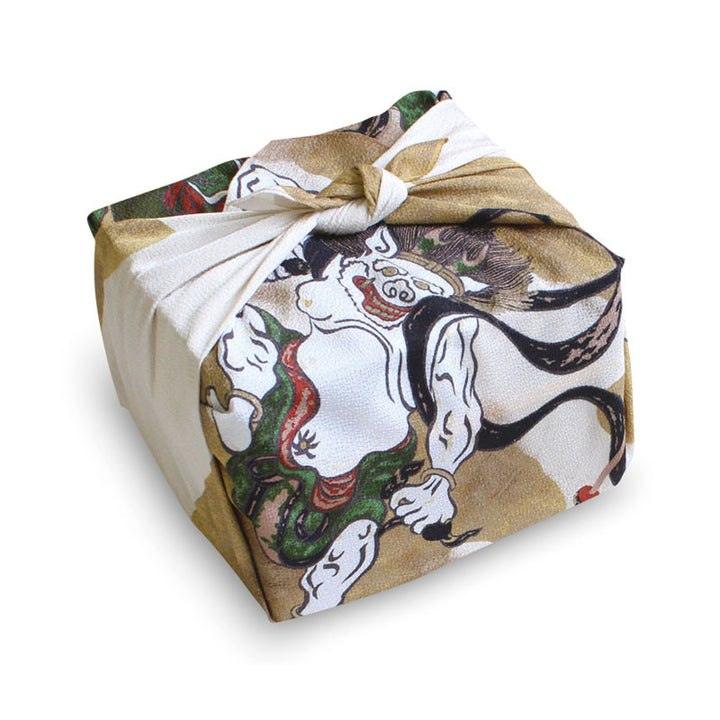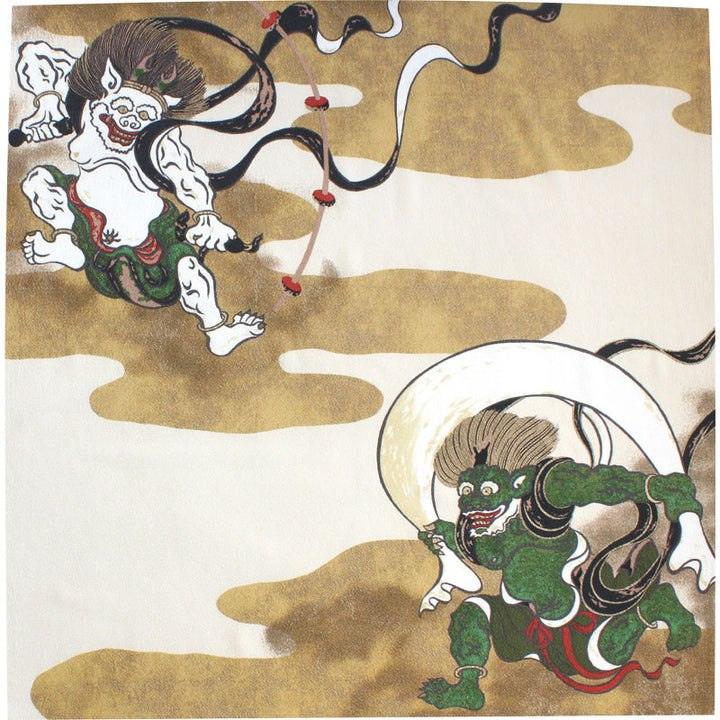Chirimen art furoshiki "Fujin Raijin" 68x68 cm
- Regular price
-
$32.00 USD - Regular price
-
- Sale price
-
$32.00 USD
Couldn't load pickup availability
Sorry, this item is no longer available.
Fujin Raijin
The Wind God and Thunder God (Fujin ”風神” Raijin”雷神”) were originally messengers of the god Senju Kannon, and have been worshipped since ancient times. The image on this Furoshiki is a national treasure of Tawaraya Sotatsu's folding screen held by Kenninji temple. It is said to be the masterpiece of his later years, with its tense composition, illusionary clouds created by the Tarashikomi technique, and the fierce dynamism and powerful presence of the two deities.
Despite their rivalry for control of the sky, Raijin and Fujin are often represented together in Japanese traditional arts. This has given many masterpieces you can still observe during a trip to Japan.
The best-known example is the Sensoji temple in Tokyo’s Asakusa neighbourhood. Indeed, their two gigantic statues guard the oldest temple of the Japanese capital city from its gateway, the famous Kaminarimon.
This Furoshiki will be a great art piece on your wall.
This rayon crape fabric has a luster similar to that of silk, so much so that it is called jinken (human silk), and has a beautiful drape and a luxurious feel.
It has the tendency to shrink when it gets wet, so dry cleaning is recommended for care.
The surface of the fabric is delicately decorated with gold.
|
What's Furoshiki
Furoshiki is a square piece of cloth or fabric traditionally used to wrap and or to transport items for over a thousand years in Japan. The first furoshiki was used during the Nara period (AD 710 to 794). While the name has changed, the form has been handed down without much change. It is a traditional Japanese cultural item created by the thoughtful wisdom of the Japanese people.
Furoshiki usage declined in the post-war period, in large part due to the proliferation of paper and plastic bags available to shoppers. In recent years, however, it has seen a renewed interest as environmental protection has become a greater concern.
Nowadays, Furoshiki is used in many different ways. You can wrap and tie each corner to suit the size and shape of the contents within. In this way, it is very useful to carry items. It also has become increasingly popular for gift wrapping.
It is light, compact, washable and reusable. It can be used in so many ways!!
We can’t wait to share all our ideas of how to use them with you. Furoshiki will become a MUST have in your sustainable living lifestyle.
Made by Yamada-Sen-i
Yamada sen-i Co. was founded in 1937 as a manufacturer of Furoshiki. The company has produced hundreds of different Furoshiki using various dying and weaving techniques and has been focusing on promoting the use of Furoshiki in everyday life.
The name of its Furoshiki brand “MUSUBI” comes from “born(生す/musu)” and “beauty(美/bi)” in Japanese. Additionally, “MUSUBI” means “a knot” and “to tie” MUSUBI produce and sell hundreds of different Furoshiki using various dying and weaving techniques such as double-sided dying.













